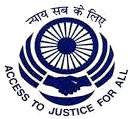Lok Adalat Other than National, April 2019 to march 2020
| Title | Date | View / Download |
|---|---|---|
| Lok Adalat Other than National, April 2019 to march 2020 |
Accessible Version :
View(158 KB)
|






